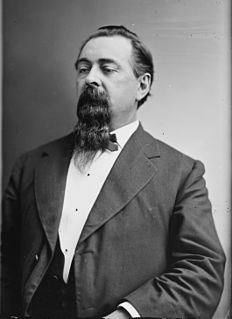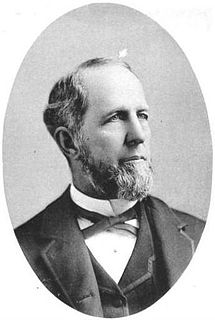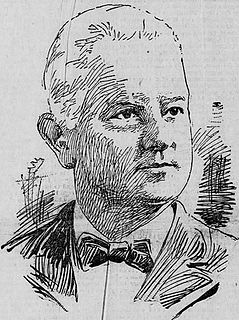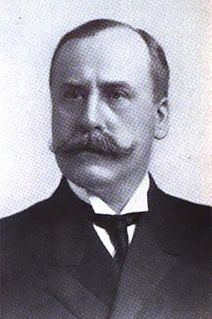
Alta California, known sometimes unofficially as Nueva California, California Septentrional, California del Norte or California Superior, began in 1804 as a province of New Spain. Along with the Baja California peninsula, it had previously comprised the province of Las Californias, but was split off into a separate province in 1804. Following the Mexican War of Independence, it became a territory of Mexico in April 1822 and was renamed "Alta California" in 1824. The claimed territory included all of the modern US states of California, Nevada and Utah, and parts of Arizona, Wyoming, Colorado and New Mexico.

The government of California is the governmental structure of the state of California as established by the California Constitution. It is composed of three branches: the executive, consisting of the Governor of California and the other constitutionally elected and appointed officers and offices; the legislative, consisting of the California State Legislature, which includes the Assembly and the Senate; and the judicial, consisting of the Supreme Court of California and lower courts. There is also local government, consisting of counties, cities, special districts, and school districts, as well as government entities and offices that operate independently on a constitutional, statutory, or common law basis. The state also allows direct participation of the electorate by initiative, referendum, recall and ratification.

Amasa Leland Stanford was an American tycoon, industrialist, politician, and the founder of Stanford University. Migrating to California from New York at the time of the Gold Rush, he became a successful merchant and wholesaler, and continued to build his business empire. He spent one two-year term as Governor of California after his election in 1861, and later eight years as a United States Senator. As president of Southern Pacific Railroad and, beginning in 1861, Central Pacific, he had tremendous power in the region and a lasting impact on California. He is widely considered a robber baron.

Anselm Joseph McLaurin was the 34th Governor of Mississippi, serving from 1896 to 1900.

The Territory of Idaho was an organized incorporated territory of the United States that existed from March 3, 1863, until July 3, 1890, when the final extent of the territory was admitted to the Union as Idaho.

The Lieutenant Governor of California is a statewide constitutional officer and vice-executive of the U.S. state of California. The lieutenant governor is elected to serve a four-year term and can serve a maximum of two terms. In addition to basically ceremonial roles, serving as acting governor in the absence of the Governor of California and as President of the California State Senate, the lieutenant governor either sits on many of California's regulatory commissions and executive agencies.

José Antonio Romualdo Pacheco, Jr. was a Californio politician and diplomat. He was elected and appointed to various California state and federal offices and posts throughout his more than thirty-year career, including serving in the California State Senate, as the 12th governor of California, and three terms in the United States House of Representatives. Pacheco remains the only Hispanic or Latino governor in the state's history as part of the U.S. He was also the state's first governor to be born in California and the only governor to be born in the state before statehood. Pacheco represented California in the United States House of Representatives as a Member of the Republican Party from March 4, 1877 to February 7, 1878, and from March 4, 1879 to March 3, 1883. He was the first Hispanic Representative from a U.S. state; several others had previously served as delegates for U.S. territories and as such did not have full voting privileges.

George Lemuel Woods was an American lawyer, judge, and politician. A member of the Republican Party, Woods served as the third Governor of Oregon from 1866–1870. Failing to win renomination, Woods was then appointed Territorial Governor of Utah by President Ulysses S. Grant, serving in that position from 1871–1875.

Charles Clark Stevenson was an American politician. He was the fifth Governor of Nevada. He was a member of the Republican Party.

Norman Bushnell Willey was the second Governor of Idaho from 1890 until 1893.

Edward B. Pond was a Democratic politician from California. He was the 21st Mayor of San Francisco from 1887 to 1891. In 1890, he ran for Governor of California. At the California Democratic State Convention, San Francisco Boss Christopher Buckley backed Mayor Pond. Edward B. Pond defeated William D. English of Oakland for the nomination. In the general election, Edward Pond lost to Republican, Henry Markham. The SF Public Library has a picture of him and his house.

California's 1st congressional district is a congressional district in the U.S. state of California.

California's 2nd congressional district is a congressional district in the U.S. state of California.
Timothy N. Machin was the tenth Lieutenant Governor of California from 1863 to 1867. He previously served in the California State Assembly, representing Tuolumne and Mono counties for two terms in 1862 and 1863.

John B. Reddick was a California attorney and Republican politician who served as the 19th Lieutenant Governor of California.

Frederick William Plaisted was an American politician and the 48th Governor of Maine.
















